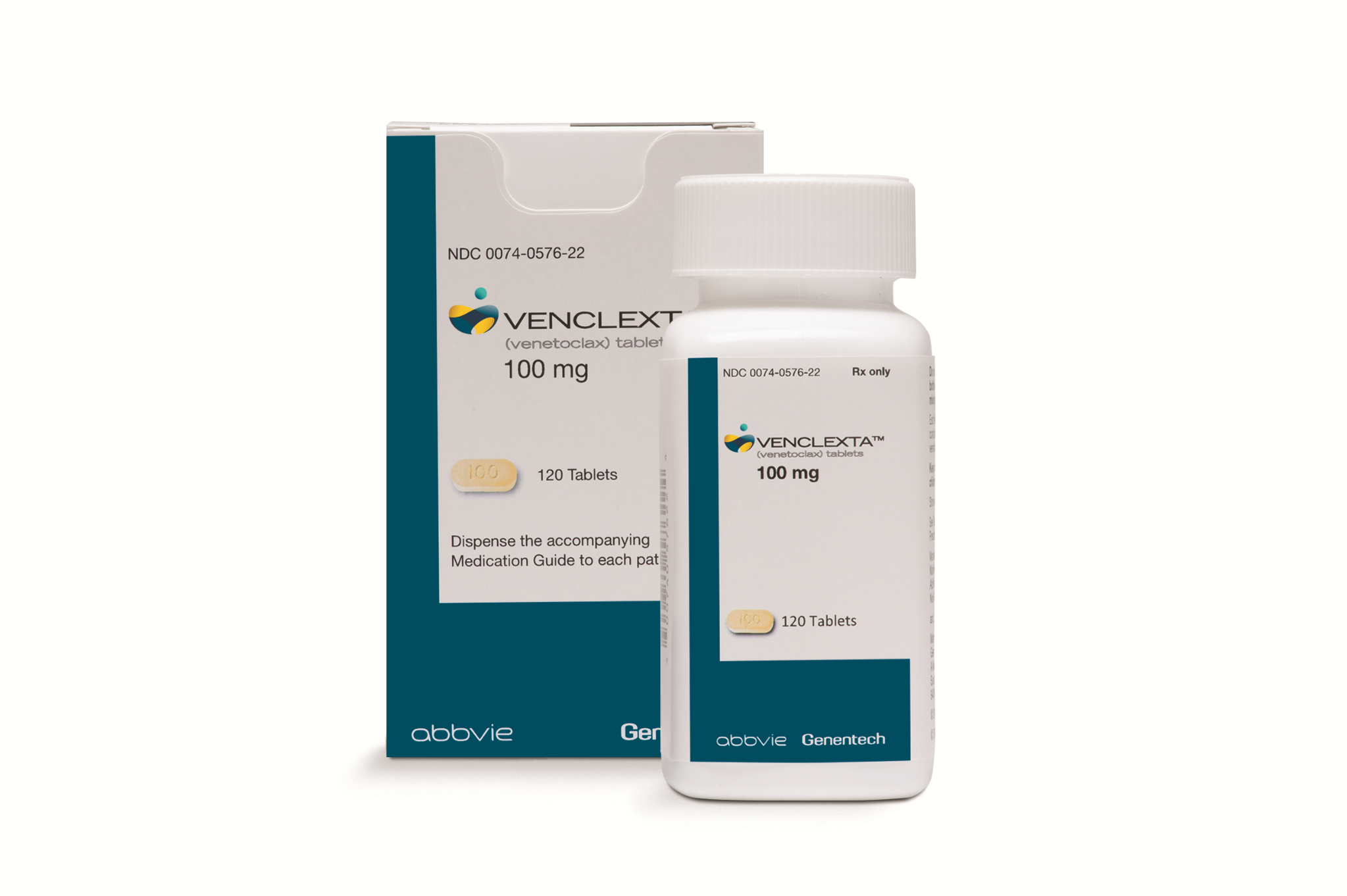New combination trial firms up Venclexta’s prospects in AML

AbbVie and Roche have been thrown a lifeline for their Venclexta drug in acute myeloid leukaemia (AML), just weeks after the drug failed a confirmatory trial that jeopardised its FDA approval in this type of blood cancer.
The phase 3 VIALE-A trial of Venclexta (venetoclax) in combination with chemotherapy drug azacitidine in previously untreated AML has shown that the duo was more effective than azacitidine alone at improving overall survival and the complete remission rate.
In late February, AbbVie and Roche revealed that first-line treatment with BCL-2 inhibitor Venclexta plus low-dose cytarabine (LDAC) wasn’t able to improve survival compared to LDAC plus placebo in the VIALE-C study.
Venclexta has been approved for use as a front-line therapy for AML since November 2018, when it was cleared for use alongside LDAC, azacitidine or decitabine on the strength of phase 1/2 studies. At the time, the partners agreed to carry out confirmatory phase 3 trials with all three combinations as a condition of its accelerated approval.
AML is a key indication for Venclexta, and helped the drug expand to $792 million in sales last year, according to AbbVie, which books revenues from the drug. Venclexta is also approved for treatment-naïve and previously-treated chronic lymphocytic leukaemia (CLL) and small lymphocytic leukaemia (SLL).
AbbVie said in its fourth-quarter results – before the results of VIALE-C came in – that it expects sales to swell to $1.3 billion this year.
The positive VIALE-A results suggest that AbbVie and Roche will be able to limit the impact on Venclexta in AML of the failed LDAC trial, as the companies try to build presence for the drug in other indications.
This month brought some good news for the companies on that front. AbbVie won approval in Europe for Venclexta in combination with Roche’s Gazyvaro (obinutuzumab) in first-line CLL based on the results of the CLL14 trial, which showed that the duo improved progression-free survival (PFS) by 65% compared to Gazyvaro plus chlorambucil.
AML is one of the most common forms of leukaemia in adults, with around 21,000 new cases in the US per year.
For many years, treatment of newly-diagnosed AML has relied mainly on intensive chemotherapy in people aged below 75, and treatment with azacitidine, decitabine or LDAC in older patients.
The latter age bracket is getting increasingly competitive as new drugs reach the market. A key rival to Venclexta is Pfizer’s Hedgehog inhibitor Daurismo (glasdegib), which was approved as a combination with LDAC in 2018.












